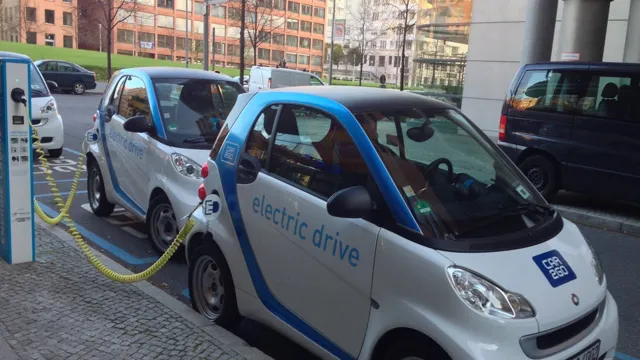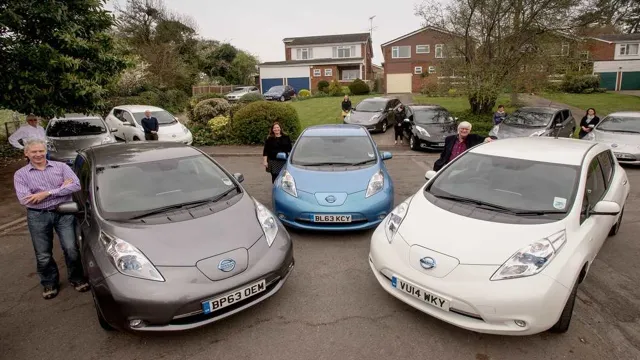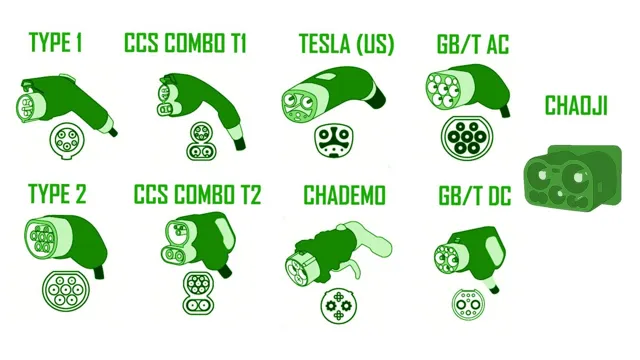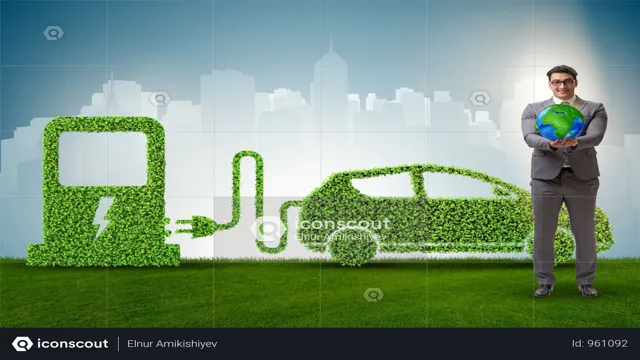Drive into the future with our comprehensive electric car guide Australia
Electric cars have taken the world by storm in recent years, and Australia is no exception. With the rising costs of fuel and the increased interest in sustainable living, more and more Australians are turning to electric cars as a solution. However, with so many options available, it can be overwhelming to navigate the world of electric cars.
That’s where our ultimate electric car guide for Australia comes in. We’ve compiled all the information you need to know, from the benefits of electric cars to the different types available and how to choose the right one for your needs. So whether you’re a seasoned electric car enthusiast or just starting to explore the world of sustainable transportation, this guide has everything you need to make an informed decision.
Let’s dive in!
Why Go Electric?
Electric cars are becoming increasingly popular in Australia, and for good reason. Not only do they produce zero emissions, but they are also cost-effective and convenient to operate. With rising fuel prices and concerns about climate change, many Australians are turning to electric cars as a sustainable alternative.
They are quiet, offer quick acceleration and have lower maintenance costs than traditional petrol-powered cars. Additionally, many electric cars are equipped with advanced technology, such as regenerative braking and smart charging systems, which allow them to be more energy-efficient. If you are considering purchasing an electric car in Australia, you should know that there are a variety of models available, from compact city cars to spacious SUVs.
With the increasing availability of charging stations across the country, there’s never been a better time to go electric. So, if you want to save money, reduce your carbon footprint and enjoy a comfortable driving experience, an electric car may be the perfect choice for you.
Advantages of Electric Cars
Electric cars are gaining popularity amongst drivers for many reasons. One of the biggest advantages of electric cars is that they are environmentally friendly. Since they don’t use gasoline or diesel, electric cars don’t emit harmful pollutants like carbon monoxide, nitrogen oxides, or particulate matter.
This not only means cleaner air for everyone, but it also reduces our overall carbon footprint, making electric cars an excellent choice for people who want to reduce their own environmental impact. Another advantage of electric cars is that they can save you money in the long run. While the initial cost of an electric car may be higher than a traditional gas-powered car, electric cars are much more efficient and require less maintenance.
For example, electric motors have fewer moving parts, which means there is less wear and tear to worry about. Additionally, since electric cars don’t require oil changes or other routine maintenance, you’ll save money on these ongoing costs. Finally, electric cars also offer a fun driving experience that many people enjoy.
Because electric motors produce instant torque, electric cars often accelerate more quickly than traditional cars. They are also quieter, which means you won’t have to deal with as much road noise. Overall, electric cars are a great choice for anyone who wants to save money, help the environment, and enjoy a fun driving experience.

Environmental Benefits
“Electric cars” Electric cars offer several environmental benefits that make them a smart choice for the eco-conscious consumer. One of the most significant advantages of electric cars is that they do not produce exhaust fumes like traditional cars, which are a major source of air pollution. Studies have shown that cities with high levels of traffic have higher rates of air pollution, which can lead to a range of health problems, including respiratory issues and increased risk of heart attacks.
By driving an electric car, you are helping to reduce your carbon footprint and improve air quality. Additionally, electric cars are more energy-efficient than gas-powered cars, which means they require less fossil fuel to operate. This translates into lower greenhouse gas emissions and a reduced impact on climate change.
So, if you are looking for a way to reduce your impact on the environment, switching to an electric car is an excellent choice.
Electric Car Models Available in Australia
Looking for an electric car in Australia? You’re in luck! There are a variety of electric car models available across the country. Some popular options include the Nissan Leaf, Hyundai Kona Electric, and BMW i The Nissan Leaf is a reliable, affordable model with a sleek design and impressive range of up to 270 km.
The Hyundai Kona Electric is another great choice with a spacious interior, cutting-edge tech features, and a range of up to 480 km. And for those looking for a luxury option, the BMW i3 offers a stylish design, impressive handling, and a range of up to 260 km. With more and more Australians opting for electric cars, there’s never been a better time to make the switch.
Not only are they environmentally friendly, but they’re also more cost-effective to operate and maintain than traditional gas-powered vehicles. So, if you’re considering an electric car, be sure to check out these popular models and see which one is the perfect fit for you!
Top Picks by Brand
Electric Car Models Available in Australia If you are considering purchasing an electric vehicle in Australia, there are plenty of options to choose from. Each brand has a unique set of features, so it’s important to do your research before making a decision. Some of the top picks by brand include the Tesla Model S, Nissan Leaf, BMW i3, Hyundai Ioniq, and Mitsubishi Outlander PHEV.
The Tesla Model S is known for its advanced technology and sleek design, while the Nissan Leaf is the world’s best-selling electric car and offers a comfortable ride. The BMW i3 is a unique car with an eco-friendly interior, and the Hyundai Ioniq provides excellent fuel economy. Finally, the Mitsubishi Outlander PHEV is a versatile SUV that offers both electric and gasoline power options.
Whatever your needs may be, there’s an electric car in Australia that’s perfect for you.
Price Comparison and Features
When it comes to electric cars in Australia, there are several models available on the market. The most popular of these electric cars are the Tesla Model S, the Nissan LEAF, the Mitsubishi i-MiEV, and the BMW i Each of these models offers a unique set of features, from sleek style to impressive range.
One of the biggest factors that sets these electric cars apart is their price. The Tesla Model S is the most expensive of the bunch, with a price tag that starts at $105,000. However, it offers the longest range of any electric car on the market, making it a great choice for those who travel frequently.
The Nissan LEAF, on the other hand, is one of the most affordable electric cars available, with a starting price of just $49,990. While its range is not as impressive as the Model S, it’s still a great choice for those looking to make the switch to electric. The Mitsubishi i-MiEV falls somewhere in between these two, with a starting price of $44,000 and a range of around 100km.
Finally, there’s the BMW i3, which offers a range of around 300km and a starting price of $64,900. The i3 is known for its sleek look and impressive acceleration, making it a great choice for those who want a luxury electric car. Overall, there are several great electric car models to choose from in Australia, each with their own unique features and price points.
Whether you’re looking for an affordable option like the Nissan LEAF, or a high-end luxury car like the Tesla Model S, there’s sure to be an electric car that fits your needs and budget.
Battery Range Comparison
If you’re considering purchasing an electric car in Australia, you’re in luck – there are a variety of models to choose from! One major factor to consider when purchasing an electric car is battery range. The battery range of a car is the distance it can travel on a single charge before needing to be recharged. Currently, the electric car models available in Australia have varying battery ranges, so it’s important to consider your needs and usage.
For example, the Tesla Model S has an impressive battery range of up to 610 kilometers, making it a great option for long road trips. On the other hand, the Nissan Leaf has a battery range of up to 270 kilometers, which may be sufficient for daily commuting and short trips. It’s also important to consider factors such as charging infrastructure, as having access to charging stations can greatly impact your driving experience.
Other electric car models available in Australia include the Hyundai Ioniq, Kia Niro EV, and Jaguar I-PACE, all with varying battery ranges. Ultimately, the choice of electric car and battery range will depend on your individual needs and preferences. However, with more and more electric car models becoming available in Australia, it’s exciting to see the future of sustainable transportation.
Charging and Maintenance
When it comes to owning an electric car in Australia, one of the most important aspects to consider is its charging and maintenance. Charging your EV is normally done at home, with the use of either a 240-volt home charging station or a portable charging unit that plugs into a regular power outlet. It’s essential to keep an eye on your EV battery’s charge level and never let it run too low, as this can lead to significant problems with its longevity and performance.
Additionally, regular maintenance is necessary, just like any other vehicle, to ensure that your car remains in top condition. This includes tire rotations, brake checks, and regular servicing of the vehicle’s components. By following these guidelines, Australian EV owners can enjoy the perks of owning an electric car while ensuring that it stays in excellent shape, providing a smooth driving experience for years to come.
So, if you’re an electric car owner in Australia, make sure to prioritize charging and maintenance to reap the benefits of emission-free driving.
Charging Options in Australia
When it comes to electric vehicles, charging options are crucial. In Australia, there are several options available for EV drivers to charge their cars. One of the most common options is to use a public charging station.
These stations are usually located in public areas, like malls and parking lots, and can be accessed by anyone. Some public charging stations offer free charging, while others require payment. Another option is to install a home charging station.
This is a great option for those who have a garage or a driveway. Home charging stations come in different types and can charge an EV in a matter of hours. It is also important to remember to maintain your EV’s battery to ensure it stays in good condition.
Regular maintenance can help extend the lifespan of your battery and keep your EV running smoothly. Overall, it is important to consider your charging and maintenance options when owning an electric vehicle in Australia.
Cost and Time Comparison with Gasoline Cars
When it comes to cost and time comparison, electric cars present a significant advantage over gasoline cars in charging and maintenance. Recharging an electric car at home often costs less than filling up the gas tank at a gas station, depending on the location and electricity rates. Additionally, electric cars require minimal maintenance, as they have fewer moving parts than traditional cars.
With no engine oil changes and fewer brake replacements, owners can save a significant amount of money and time on maintenance. Furthermore, electric cars offer quiet and smooth rides, making them a practical choice for daily commutes. Overall, by reducing charging and maintenance costs, electric cars can help drivers save money and time, making them a more efficient and sustainable choice for many people.
So, why not consider making a switch to an electric car today?
Government Incentives and Support
If you’re considering buying an electric car in Australia, there are several government incentives and support available that could help you save money. One of the most significant incentives is the federal government’s Luxury Car Tax (LCT) exemption for electric cars. This means that if your electric car costs less than the LCT threshold (currently set at $77,565), you won’t have to pay the tax, which could save you thousands of dollars.
Additionally, some states and territories offer their electric vehicle incentives, such as rebates, exemptions, and discounts, to encourage more people to switch to EVs. For example, in the Australian Capital Territory, electric vehicles are exempt from stamp duty, while in South Australia, EV owners get a 50% discount on vehicle registration fees. These incentives and support can make it easier and more affordable to own an electric car in the country, so be sure to check with your local government to see what programs are available to you.
Federal and State Government Subsidies
Government subsidies can be a great help to businesses. Federal and state governments provide incentives and support to help businesses grow and succeed. These programs offer financial assistance, tax breaks, and other benefits to qualified businesses.
The incentives are designed to help businesses invest in new equipment, expand their operations, or develop new products. In addition to financial incentives, many government programs provide technical assistance and training to help businesses become more successful. One of the main benefits of government subsidies is that they can help to level the playing field for small businesses that might otherwise struggle to compete with larger companies.
This support can give businesses the resources they need to increase their competitiveness and create jobs.
Electric Vehicle Charging Stations Map
If you’re considering purchasing an electric vehicle, it’s important to know about the government incentives and support available to you. Many local and federal programs offer tax credits, rebates, and grants for purchasing an electric vehicle and installing charging stations in your home or workplace. These incentives can greatly reduce the cost of switching to an electric vehicle and make it more accessible for everyone.
Additionally, some states and cities offer free or discounted parking for electric vehicles, HOV lane access, and reduced toll fees. To find out what incentives are available in your area, check with your local government or visit the Energy Department’s website. With the increasing popularity of electric vehicles, it’s important to take advantage of these incentives and do your part in reducing greenhouse gas emissions and promoting a sustainable future.
The Future of Electric Cars in Australia
If you’re thinking about buying an electric car in Australia, you’re not alone. More and more Australians are making the switch to electric cars, as concerns about the environment and rising fuel costs take hold. While the uptake of electric vehicles (EVs) has been slower in Australia than in some other countries, there are signs that this is changing.
The federal government has recently announced incentives for businesses to purchase EVs and a $15 million fund to build more EV charging stations. In addition, some state governments are offering subsidies and tax breaks for individuals and businesses that buy EVs. However, there are still some obstacles to the wider adoption of electric cars in Australia, including the high cost of EVs compared to traditional vehicles and the limited range of some models.
Nevertheless, with more and more manufacturers entering the market and prices falling, the future looks bright for the electric car industry in Australia. So if you’re considering buying an electric car, do your research and check out our electric car guide Australia to find out more about the latest models and the infrastructure available to support them.
Conclusion
In conclusion, if you’re searching for a way to drive down your carbon footprint, save on fuel costs, and experience a smooth and silent ride, there is no better choice than an electric car. With the increasing availability of charging stations and government incentives, electric cars are becoming more accessible and affordable for Aussies. So why not join the fun and join the electric car revolution today? After all, the future is electric!”
FAQs
What are the benefits of owning an electric car in Australia?
There are many benefits to owning an electric car in Australia, including reduced greenhouse gas emissions, lower running costs, and access to government incentives and rebates.
How long does it take to charge an electric car in Australia?
The amount of time it takes to charge an electric car in Australia depends on the make and model of the vehicle, as well as the type of charging station being used. Typically, it can take anywhere from 30 minutes to several hours.
What types of electric cars are available in Australia?
There are many different types of electric cars available in Australia, including fully electric vehicles, hybrid vehicles, and plug-in hybrid vehicles.
What is the range of an electric car in Australia?
The range of an electric car in Australia can vary depending on the vehicle’s battery capacity and driving conditions. On average, most electric cars can travel between 200 and 400 kilometres on a full charge.







